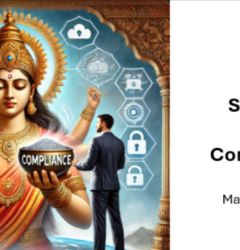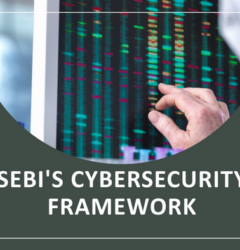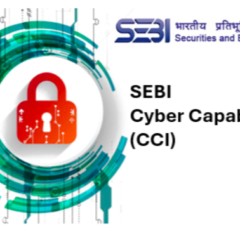There’s a parable often cited in behavioral science circles — simple, almost whimsical on the surface, but deeply revealing.
The experiment may be apocryphal, but the metaphor is painfully real — especially in the world of cyber risk and compliance.
Five monkeys are placed in a cage. In the center, a ladder with bananas at the top. Every time a monkey climbs the ladder, all five are sprayed with cold water. Eventually, they learn to stop anyone from making the attempt.
🧠 The Corporate Equivalent: Groupthink in Compliance Practices
Every organization has its version of the ladder and the cold water.
It might be a sprawling Excel risk register. Or a weekly compliance report sent to a distribution list no one reads. Or a policy updated for every audit — but never truly implemented.
And when someone new questions it, the answer is often the same:
“This is how we’ve always done it.”
In cybersecurity, this mindset is not just inefficient — it’s dangerous.
📉 The Hidden Cost of Legacy Thinking
The world has changed. Compliance mandates have evolved. Threats are more sophisticated. Attack surfaces are fluid.
Yet, many teams still:
- Collect evidence manually for each audit cycle
- Track vulnerabilities in disparate spreadsheets
- Maintain outdated controls that no longer map to business risks
- Avoid adopting automation or continuous monitoring tools out of inertia
The result? An organization that looks compliant on paper, but remains vulnerable in practice.
🔄 Rediscovering the “Why”
To move forward, cybersecurity leaders must initiate what we call a “Why Audit.” Not a review of assets or controls — but of assumptions.
For every recurring process or inherited task, ask:
- Why are we doing this?
- What risk does this address?
- Is there a better, faster, or smarter way?
Challenging legacy behavior doesn’t mean disregarding regulatory requirements. It means aligning actions with intent — ensuring that compliance efforts actually reduce risk and enhance resilience.
✅ From Ritual to Rationale: Building Modern Compliance
This shift is not just philosophical — it’s operational.
Modern GRC platforms now enable:
- Continuous control monitoring, rather than annual snapshots
- Automated evidence collection, reducing audit fatigue
- Risk-driven workflows, instead of checklist-based rituals
These are not just tools; they’re ladders worth climbing — if we can get past the conditioning.
🧭 A Cultural Reset
Breaking free from compliance groupthink is ultimately a cultural exercise. It requires:
- Leadership that encourages curiosity over conformity
- Teams empowered to rethink processes, not just follow them
- A shift from compliance for the auditor to compliance for the enterprise
Because when we stop asking “why,” we risk becoming like the monkeys — enforcing rules whose reasons we no longer remember.
📌 Final Thought
In a time when cybersecurity is evolving by the hour, tradition cannot be our compass. Let’s not be five monkeys in a room full of threats — guarding ladders we no longer understand.
Let’s climb. Let’s automate. Let’s evolve. And above all — let’s never stop asking:
“Why are we still doing it this way?”
Seconize DeRisk Center can automate all your GRC Operations and tune them to a beautiful Orchestra . Schedule a demo now !












Recent Comments